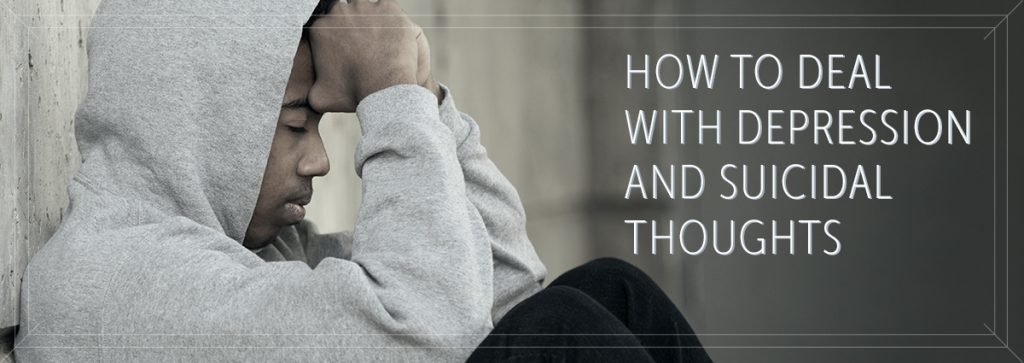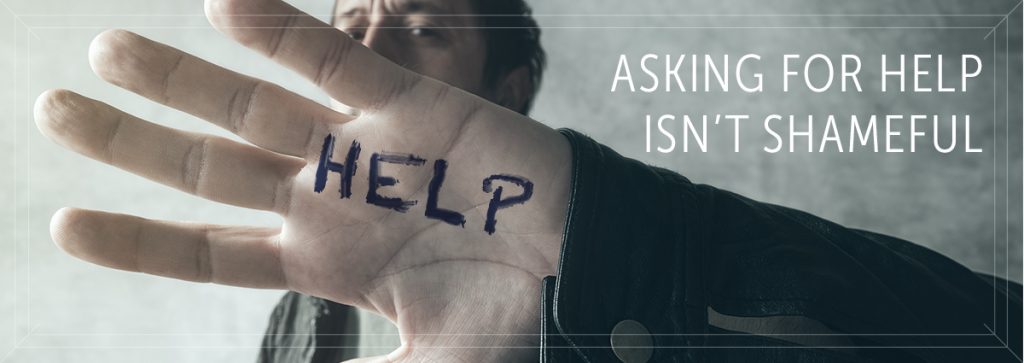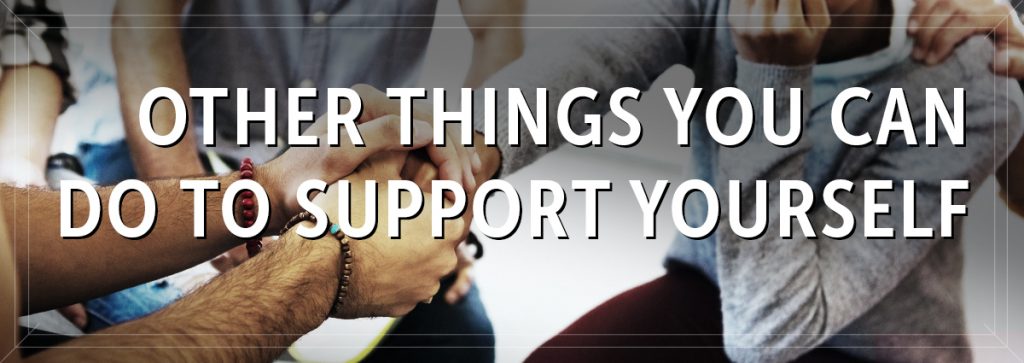
By: Jennifer McMillen Smith, LISW-S, HIV Social Worker at MetroHealth Medical Center and medically reviewed by Ann K. Avery, MD, Infectious Disease Physician at MetroHealth Medical Center
We’ve talked about depression on the blog a few times before, but we haven’t talked too much about suicide. We know that life can get tough sometimes, especially when you’re living with HIV. Some days are worse than others, and the hardest days can make you feel like your life is worthless or that there isn’t any point in being alive anymore. If you’ve ever felt this way, we’re here for you. If you are feeling this way now and are seriously considering suicide, please stop reading and call 1-800-273-8255 now.
If you’re not in a crisis, feel free to keep reading and learn about all the support that’s available to you. Remember, you are not alone -- there are so many people who have felt the same way.
Thoughts of suicide: Who has them?
It’s important to realize that no group of people is immune to thoughts of suicide. People of any age, gender, race, sexuality, nationality, or economic status can have suicidal thoughts. Even people that don’t seem depressed — even the “happiest” people you know — can experience these same feelings.
However, there are some factors that make people more likely to experience suicidal thoughts. These include:
- Past suicide attempts
- Depression or other mental health disorders
- Family history of mental health or substance abuse disorders
- A substance abuse disorder
- Family history of suicide or suicide attempts
- Growing up in a physically or sexually violent home
- Living in a home with guns or other firearms
- Previously being incarcerated
- Exposure to suicidal behavior from family members, friends, other peers, or media figures
- Having a medical illness
Sometimes when people go through something really difficult, they may think suicide is their only option left. We get it, sometimes it feels like there’s no way out. The thing is though, there’s always another way, you might just need a fresh set of eyes to see it. This is why reaching out for support is so important. There is help available for you to help you identify ways to cope with whatever is going on in your life. Help is out there, the only thing you need to do is ask for it.
Asking for help isn’t shameful
It may surprise you how many people have had periods of their life where they questioned if they wanted to keep living. Even people you’d never think would be suicidal, like famous actors, singers, and other super successful people, have shared stories of dealing with depression, suicidal thoughts, and how they were able to get through this time and begin to heal. It’s important for you to know that if you’re having suicidal thoughts, you aren’t alone. There is hope for you.
Come join our private, stigma-free, supportive community.
Health management tools with medication & appointment reminders.
Social networking in a community conversation & private chats.
Where to find support
Even though it can feel impossible to let people in, your friends or family may not know you need them unless you say something. It’s easy to assume that people around us know how we feel or that we need help, but that’s not always the case. If you’re feeling lost, you can always reach out to someone that you trust.
However, it can be really hard to open up to friends and family, too. If that is the case, there are other options out there if you need help. There are plenty of 24/7 hotlines that are great because they’re free, anonymous, confidential, and have supportive, compassionate operators answering your call. Some of them are even survivors themselves. Call the National Suicide Prevention Lifeline at 1-800-273-8255 if you need someone to talk to.
In addition to experiencing suicidal thoughts, there are lots of reasons people call the 24/7 Lifeline: relationship or family challenges, substance abuse, sexual identity, economic worries, depression, mental and physical illness, getting over abuse, loneliness, and general feelings of anxiety and overwhelm. This means that you can talk freely, because the people answering calls have experience with a wide range of topics.
When you’re feeling distressed or suicidal, talking to someone about what you’re going through can save your life. If you need emotional support, you can call the Lifeline at any time and for any reason. Whether you’re feeling depressed, having suicidal thoughts, or just need someone to talk to, the Lifeline is here for you.
Other things you can do to support yourself
If you are having suicidal thoughts in the moment, we suggest that you talk to someone and get help as soon as possible (call 1-800-273-8255). However, if you are not at a crisis point, here are some other things you can do to help you feel better:
- Finding a therapist and/or support group can make a huge difference. Not only can it improve your mental health, but having the support of a therapist or support group can also teach strategies to help you feel better long-term. Check out this link to find local support groups, psychologists, and psychiatrists.
- Build up your personal support network. Your personal support network is made up of your friends, family, significant other, community, and your circle of trust. These are people who can help you get through a crisis. Connecting with people online that are going through something similar is another great way to connect with people who understand and let you know you aren’t alone.
- Create a safety plan for those times when you’re feeling really low. Many times, you just need to get through the next five minutes until those intrusive thoughts go away and you can get help. Here are a 100 ways to get through the next five minutes. Read more about creating a safety plan.
Read about other people’s stories
Reading stories of recovery can give you hope that things won’t feel like this forever and that they can get better. Many people with HIV are living happy lives and, believe it or not; your story could inspire someone too! Feeling suicidal is a really difficult thing to go through but surviving it can inspire so much hope in someone else who is struggling. Getting through it together is the key to many support groups and other networks of people who are going through similar feelings.
If you’re struggling with depression or experiencing suicidal thoughts, it doesn’t make you weak to ask for help. It only makes you human. If you’re depressed, reach out to someone in your support network or call the Lifeline. There is always help available. All you have to do is ask.
Related Blogs:
Mental Illness: What it is, how to spot symptoms, where to get help







